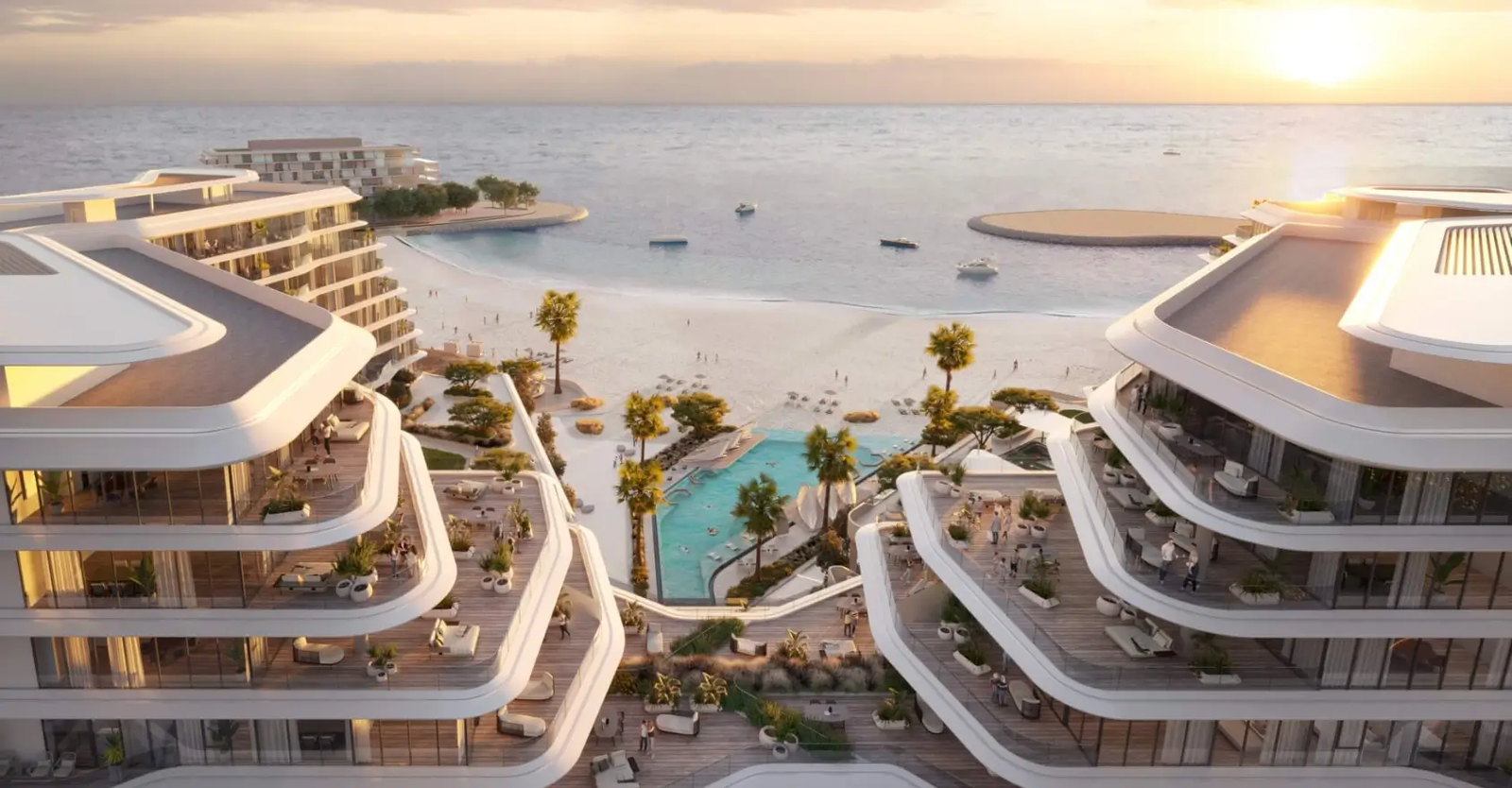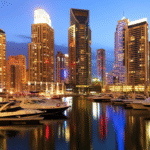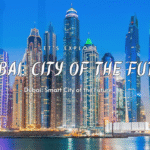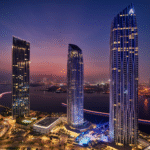Now Reading: Umm Al Quwain Real Estate: 5 Tax Benefits for Developers in 2025
-
01
Umm Al Quwain Real Estate: 5 Tax Benefits for Developers in 2025
Umm Al Quwain Real Estate: 5 Tax Benefits for Developers in 2025
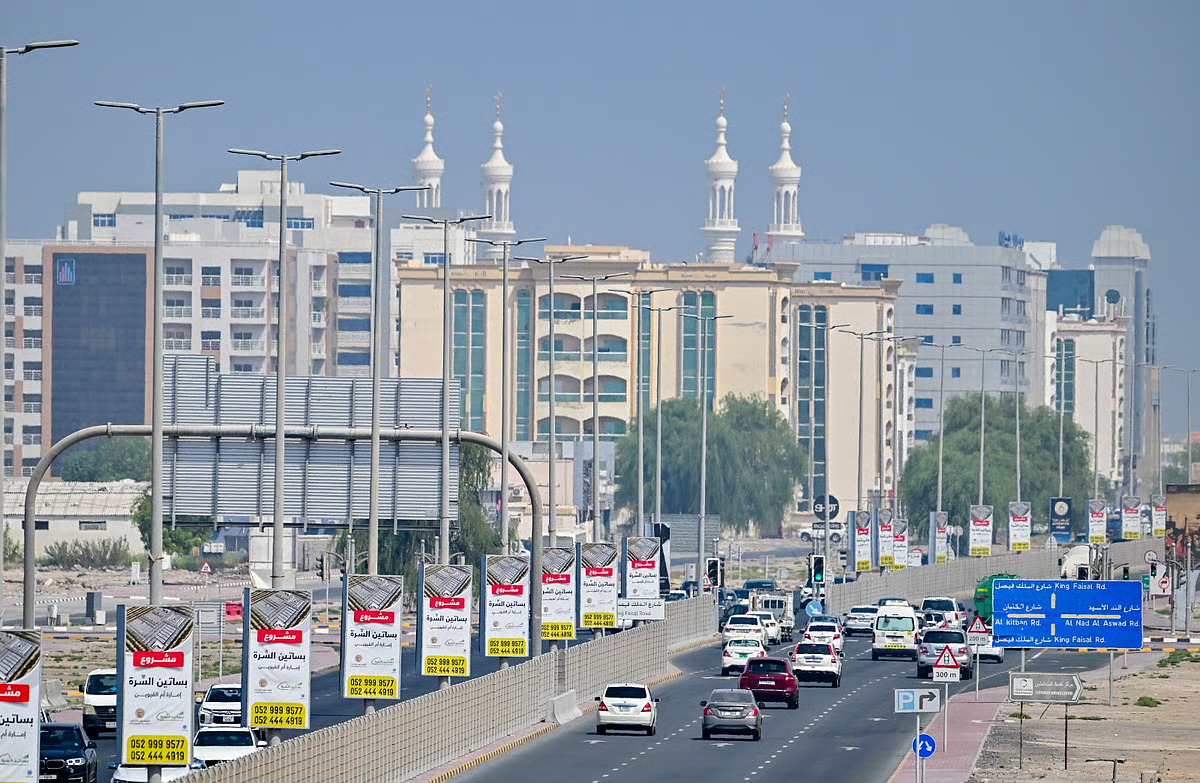
Table of Contents
Umm Al Quwain’s (UAQ) real estate market, valued at AED 10.2B in 2024 with 38% year-on-year growth, is a rising destination for developers, driven by affordability (40–50% cheaper than Dubai’s AED 2.5M median), high rental yields (7–9%), and tax-efficient policies.
Five tax benefits zero corporate tax for Qualifying Free Zone Persons (QFZPs), zero personal income tax, zero capital gains tax, VAT exemptions on residential developments, and low transfer fees enhance profitability in freehold zones like Umm Al Quwain Free Trade Zone (UAQ FTZ), Al Siniya Island, Umm Al Quwain Marina, Al Salam City, and Al Raudah.
These zones support residential (apartments AED 300K–1.57M, villas AED 1M–10M), commercial, and mixed-use projects, yielding 8–10% ROI and 12–15% appreciation by 2028. Supported by mega-projects like Sobha Siniya Island and Downtown UAQ, infrastructure upgrades (e.g., UAQ Port expansion, Q3 2025), and tourism growth (0.9M visitors in 2024), UAQ attracts developers with 90% absorption and AED 2.5B in Q1 2025 transactions. This guide details each tax benefit, eligibility, and impact on developers, backed by 2024–2025 data.
1. Zero Corporate Tax for Qualifying Free Zone Persons (QFZPs)
- Details: Effective since 2023, QFZPs in the Umm Al Quwain Free Trade Zone (UAQ FTZ) enjoy a 0% corporate tax rate on profits from real estate development, including commercial and industrial projects (e.g., offices AED 500K–2M, warehouses AED 1M–3M). Non-QFZPs face a 9% corporate tax on profits above AED 375K.
- Eligibility: Developers must register with UAQ FTZ Authority, conduct qualifying activities (e.g., property development, management), maintain economic substance (e.g., local staffing, assets), and avoid mainland transactions unless strategic. Requires Federal Tax Authority (FTA) compliance and audited financials.
- Impact on Developers: Saves 9% tax on profits (e.g., AED 90K on AED 1M profit), boosting net returns for projects like UAQ FTZ offices (8–10% ROI). In 2024, 15% of commercial developments in UAQ FTZ utilized this benefit, driving 20% occupancy growth. Encourages mid-sized developers to structure through UAQ FTZ, enhancing competitiveness in cross-emirate markets like Dubai and Sharjah.
2. Zero Personal Income Tax
- Details: No personal income tax is levied on rental income or profits from real estate developments held by individual developers, allowing 100% retention of earnings. Applies to residential projects (e.g., Al Siniya Island apartments, AED 1.09M–1.57M, rentals AED 40K–90K/year) and commercial spaces (e.g., Al Salam City offices, AED 400K–1M, rentals AED 30K–80K/year).
- Eligibility: Available to individual developers or partners in unincorporated entities, regardless of residency. No income reporting is required for personal earnings. Corporate entities are subject to 9% tax unless QFZPs.
- Impact on Developers: Maximizes returns for small developers, yielding 8–10% ROI (e.g., AED 60K/year on a AED 750K Al Raudah apartment). In 2024, 60% of UAQ transactions were rental-focused, attracting developers targeting South Asian (20%) and GCC (25%) investors for buy-to-let projects like AYA Beachfront Residences. Enhances cash flow for off-plan developments (e.g., Sobha Aquamont, handover Q4 2027).
3. Zero Capital Gains Tax
- Details: No capital gains tax is imposed on profits from selling developed properties, whether short-term or long-term. Applies to freehold zones like Umm Al Quwain Marina (apartments AED 300K–1.5M, 12–15% appreciation by 2028) and Al Siniya Island (villas AED 10M, 40–50% appreciation by 2028).
- Eligibility: Available to individual developers and QFZPs in freehold zones. Non-QFZPs may face 9% corporate tax on gains unless structured via UAQ FTZ. Sales must be registered with Umm Al Quwain Department of Land and Real Estate Regulation (DLD) for compliance.
- Impact on Developers: Retaining full gains (e.g., AED 600K on a AED 1.5M apartment sold after 5 years) boosts profitability. Drove 30% of 2024 off-plan sales (e.g., Sobha Siniya Island, AED 1.57M units), appealing to developers targeting high-net-worth investors (10% European). Supports long-term projects with 40–50% projected growth, like Al Siniya Island.
4. VAT Exemptions on Residential Developments
- Details: Residential property sales and leases in freehold zones are VAT-exempt, unlike commercial properties (5% VAT). New residential builds incur a one-time 5% VAT on construction costs, recoverable if properties are leased. Applies to projects like Al Salam City apartments (AED 300K–800K) and Al Raudah villas (AED 1M–2M).
- Eligibility: Applies to residential developments in freehold zones (e.g., Umm Al Quwain Marina, Al Siniya Island). Developers must register with DLD for VAT recovery on leased properties. Commercial projects in UAQ FTZ may qualify for zero-rated VAT.
- Impact on Developers: Saves 5% on residential sales (e.g., AED 50K on a AED 1M apartment), reducing costs and enabling competitive pricing. In 2024, 70% of UAQ’s residential transactions were VAT-exempt, driving demand for off-plan projects like AYA Residences (AED 1.09M, 40% on handover). Enhances affordability for mid-income buyers, boosting sales volume by 22%.
5. Low Transfer Fees
- Details: UAQ charges a 2% transfer fee on property sales (split equally between buyer and seller), lower than Dubai’s 4%. No discounts are currently offered, unlike Ajman’s expo-based reductions. Applies to all freehold zones, including Al Raudah apartments (AED 300K–800K) and Al Siniya Island villas (AED 10M).
- Eligibility: Available to all developers selling properties in freehold zones. Requires DLD registration and No Objection Certificate (NOC). Additional fees include agent commissions (2–5%) and registration fees (up to AED 5K).
- Impact on Developers: Reduces transaction costs by AED 10K–50K (e.g., AED 20K on a AED 1M apartment), improving profit margins. In 2024, low fees contributed to a 38% transaction surge, particularly in Al Salam City (90% occupancy). Encourages developers to launch projects like Downtown UAQ (25M sq ft, AED 1.11M units), attracting first-time buyers and investors.
Market Trends and Outlook for 2025
- Yields and Appreciation: Freehold zones offer 7–9% ROI (apartments 8–10%, villas 7–9%) and 12–15% appreciation by 2028, driven by AED 2.5B in Q1 2025 transactions and 15% rental growth. Off-plan projects like Sobha Siniya Island (40–50% growth by 2028) and AYA Beachfront Residences (Q4 2027 handover) lead demand.
- Tax Efficiency: Zero corporate tax (QFZPs), personal income tax, capital gains tax, and VAT exemptions maximize developer profits. Low transfer fees (2%) reduce costs. Non-QFZPs face 9% corporate tax, encouraging free zone structuring.
- Infrastructure Impact: UAQ Port expansion (Q3 2025) and road network upgrades enhance connectivity (45 minutes to Dubai), boosting values by 12–15%. Tourism (0.9M visitors in 2024) and eco-tourism projects like Mangrove Beach drive demand for vacation rentals.
- Developer Drivers: Affordability (median AED 800K), 100% foreign ownership, and investor visas (AED 750K+ for residency) fuel 70% of demand. Off-plan sales (22% inquiry rise in 2024) dominate, with Sobha Realty and Deyaar leading projects.
- Risks: Oversupply (2,000 units by 2026) and off-plan delays pose a 10% correction risk in H2 2025. Mitigated by 90% absorption, DLD oversight, and escrow accounts (e.g., UAQ Law No. 3/2023). AML compliance (KYC) adds scrutiny, with costs of AED 2K–5K per transaction.
- Regulatory Framework: UAQ Law No. 2–7/2023 standardizes pricing, escrow accounts, and brokerage, ensuring transparency. Freehold zones allow 100% ownership and inheritance rights. DLD registration and 2% transfer fees streamline sales.
Development Strategy
- Diversification: Develop Al Siniya Island (villas AED 10M) for luxury, Umm Al Quwain Marina (apartments AED 300K–1.5M) for affordable rentals, and UAQ FTZ (offices AED 500K–2M) for commercial projects. Mixed-use developments like Downtown UAQ (AED 1.11M units) balance risk and returns.
- Entry Points: Off-plan projects (e.g., Sobha Aquamont, AED 1.09M) offer 40–50% gains by 2027–2028 with flexible payment plans (40% on handover). Ready properties (e.g., Al Salam City villas, AED 1M–2M) suit immediate rental income (AED 60K–120K/year).
- Tax Optimization: Structure as QFZPs in UAQ FTZ to avoid 9% corporate tax. Leverage VAT exemptions for residential projects and low transfer fees for cost efficiency. Consult advisors like Adepts Chartered Accountants for FTA compliance.
- Process: Verify freehold status and tax exemptions via DLD or UAQ FTZ Authority. Pay 2% transfer fees and secure NOC. Use DLD-registered agents and platforms like Bayut or dubizzle. Required documents: business license, passport copy, proof of funds. Documents must be translated into Arabic and legalized.
Conclusion
In 2025, Umm Al Quwain’s freehold zones UAQ FTZ, Al Siniya Island, Umm Al Quwain Marina, Al Salam City, and Al Raudah benefit from five tax incentives: zero corporate tax for QFZPs, zero personal income tax, zero capital gains tax, VAT exemptions on residential developments, and low transfer fees.
These benefits enhance profitability for developers, offering 8–10% ROI and 12–15% appreciation by 2028 across properties (AED 300K–10M). Backed by AED 10.2B in 2024 transactions, infrastructure like UAQ Port expansion, and tourism growth, UAQ attracts developers with projects like Sobha Siniya Island and Downtown UAQ.
Despite a 10% correction risk, 90% absorption and DLD oversight ensure stability. Explore opportunities via Bayut, dubizzle, or developers like Sobha Realty to maximize tax-efficient returns in UAQ’s high-growth market. Umm Al Quwain
read more: UAE Property Market: 6 New Tax Regulations Impacting Cross-Emirate Sales in 2025




